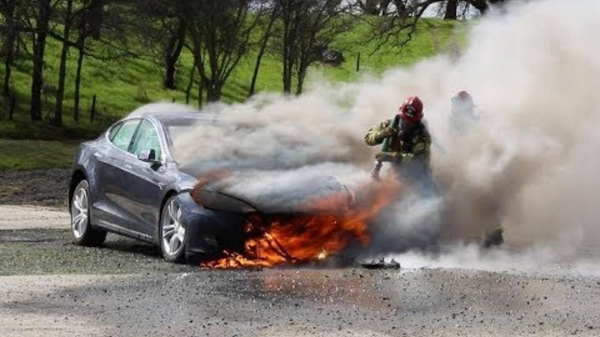Pennsylvania will spend $172 million in federal funds to build out electric vehicle charging stations across the commonwealth over the next five years
(The Center Square) – Pennsylvania lawmakers want to find a way to replace the gas tax with electric vehicle fees — before they miss out on tens of millions of dollars to fund the state’s roads and bridges.
The trick, as officials heard testimony on Monday during a House Transportation Committee hearing, is to figure out what form that fee should take to capture enough revenue.
“We must recognize the fact that our country is at the beginning stages of changing gas-powered vehicles to electric vehicles,” Rep. Ed Neilson, D-Philadelphia, said. “We need to be certain that our roads and bridges can still be maintained, repaired, and replaced … we can no longer depend on gas taxes to be the sole source of funding to maintain our infrastructure and roadways.”
Pennsylvania will spend $172 million in federal funds to build out electric vehicle charging stations across the commonwealth over the next five years to accommodate the growing number of EVs on the road.
Almost 70,000 EVs are registered in Pennsylvania.
Previous discussions have centered on an EV fee equivalent to the gas tax, as The Center Square previously reported. The fee would be paid as a separate registration fee annually. Already, 32 states have an EV registration fee and 19 assess a fee on plug-in hybrid vehicles, as well.
In Pennsylvania, however, that proposed fee wouldn’t fill the growing financial hole to pay for the state’s infrastructure maintenance and repair needs.
“The gas tax has been diminishing in value for two decades as fuel efficiency has increased and cars use less fuel,” said Nick Miller, policy analyst with the Electrification Coalition. “If a flat $290 annual fee were to be implemented on all EV drivers in the state tomorrow, it would raise roughly $19.5 million this year.”
The money, however, won’t plug the hole for transportation funding.
“PennDOT estimates that it requires $9.3 billion a year in additional funding for our roadway system,” Miller said. “Therefore, EVs are a piece of a much larger puzzle here regarding alternative funding of the funding solution, not the whole solution.”
An EV fee has won support from some industry representatives who were previously against it.
Wayne Weikel, vice president of state affairs for the Alliance of Automotive Innovation, said his group has come around on EV fees.
It’s “the best path forward,” Weikel said. “EV fee is the worst form of collecting road user fees — except for all the others that we’ve thought of.”
Other ways to raise revenue can be burdensome. A tax on the electricity used to charge vehicles, Weikel said, has a high cost to install a meter at home. Taxing the vehicle miles traveled would require tracking and monitoring drivers, which people “hate the idea of.”
A road use fee, however, avoids those issues and has lower costs.
“The state likely needs very little extra administrative costs to administer an EV fee,” Weikel said. “It ensures no one is getting a free ride and everyone is contributing to the upkeep of the roads they use every day.”
It could also be a stable and predictable revenue source. That predictability has attracted the support of the Pennsylvania Building and Construction Trades Council.
“We need a true infrastructure budget and a plan, and the flat fee allows us to control that,” said Robert Bair, president of the Council. “We just think a one-time yearly fee is the appropriate direction at this time so we know what our infrastructure budget is gonna be.”
Originally published by The Center Square. Republished with permission.
For more from Budget & Tax News.
For more public policy from The Heartland Institute.











